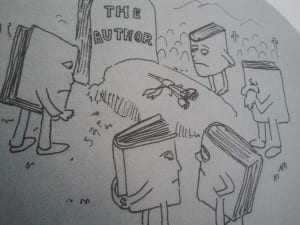Of all the arts, poetry suffers from dependency on personal opinion. I’ve been re-reading Saussure for my phd and reflecting on its application to poetry. Early 20th century Structuralists suggested meaning derives from subjective interpretation rather than any externally fixed truth. Semiotics , the science of signs, was key to Structuralist belief in the possibility of uncovering the multiple ‘truths’ of social reality. In a ‘Course in General Linguistics’, Saussure challenged realism (the world can be known) with linguistic relativism (the world can only be known through the structures of language). Structuralism revealed language as a system of signifiers (the word) and signified (the idea the word conveys) where connections between them are cultural and arbitrary rather than innate or fixed. Single meaning is replaced with multiple possibilities or references eg roses have become associated with cultural images of love, passion, beauty, valentines, romance, gardening etc. None of these describe the flower but are all part of the agreed consensus of meaning around the signifier Rose.
This stress on referential reality complicates the challenge of poetry to create maximum resonance with minimum words. Resonance is personal and subjective. Barthes understood this when he challenged modernist notions of authority and knowledge production by suggesting the author is dead. In his 1977 essay Death of the Author, (http://www.tbook.constantvzw.org/wp-content/death_authorbarthes.pdf) Barthes says the author no longer has authority and there is no such thing as a singular narrative. Instead the interpretation of text becomes a collaborative process between author and audience: ‘…a text is made of multiple writings, drawn from many cultures and entering into mutual relations of dialogue…but there is one place where this multiplicity is focused and that place is the reader’ Barthes concludes ‘Classical criticism has never paid any attention to the reader…the writer is the only person in literature…it is necessary to overthrow the myth: the birth of the reader must be at the cost of the death of the Author’. The poet has to work twice as hard to find the words. Not only must they say what they want but will also say something similar to reader. In a world where truths are subsumed with multiple possibilities, the challenge is irresistible!
Cartoon by Donald D Palmer 1997
